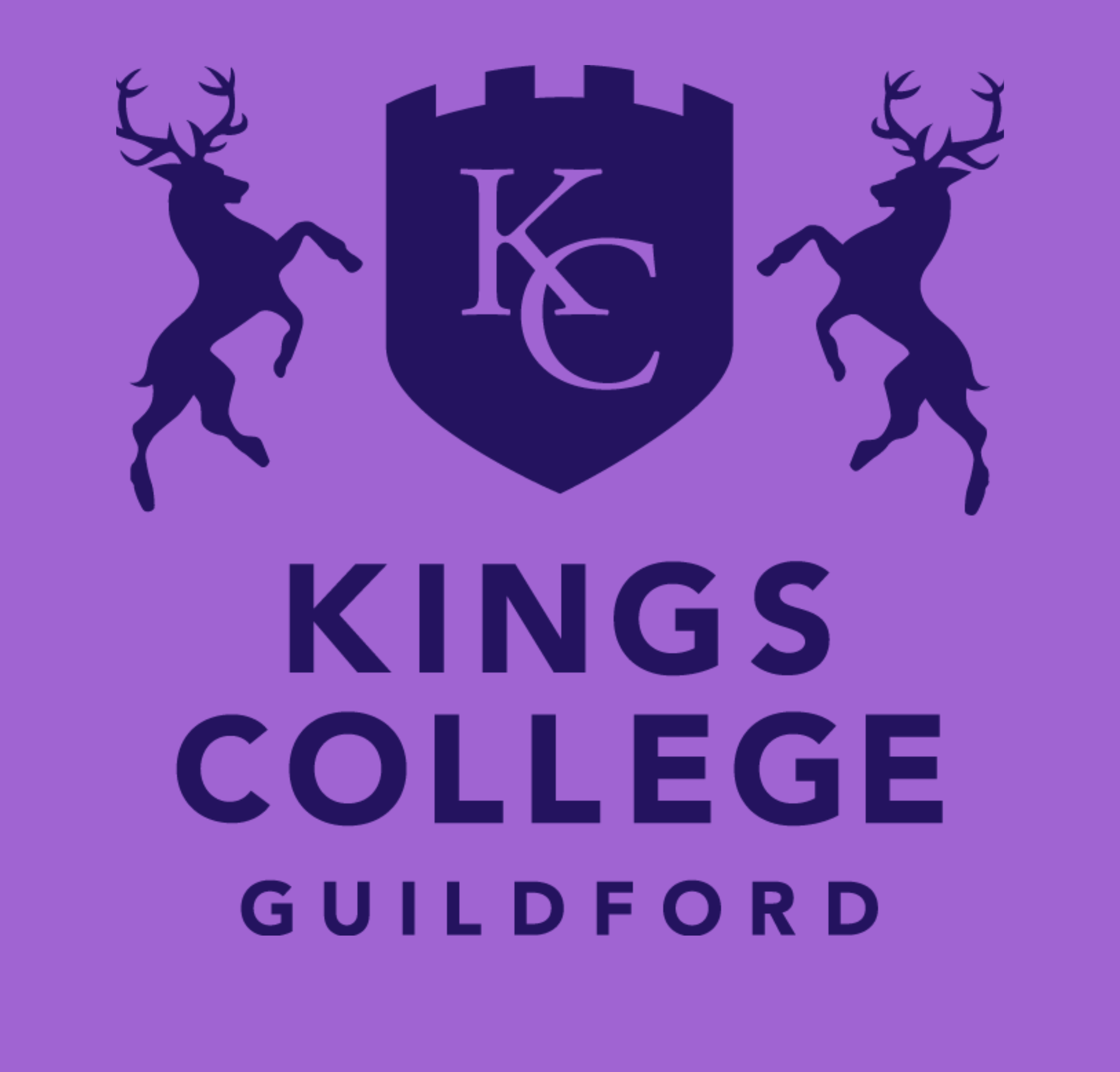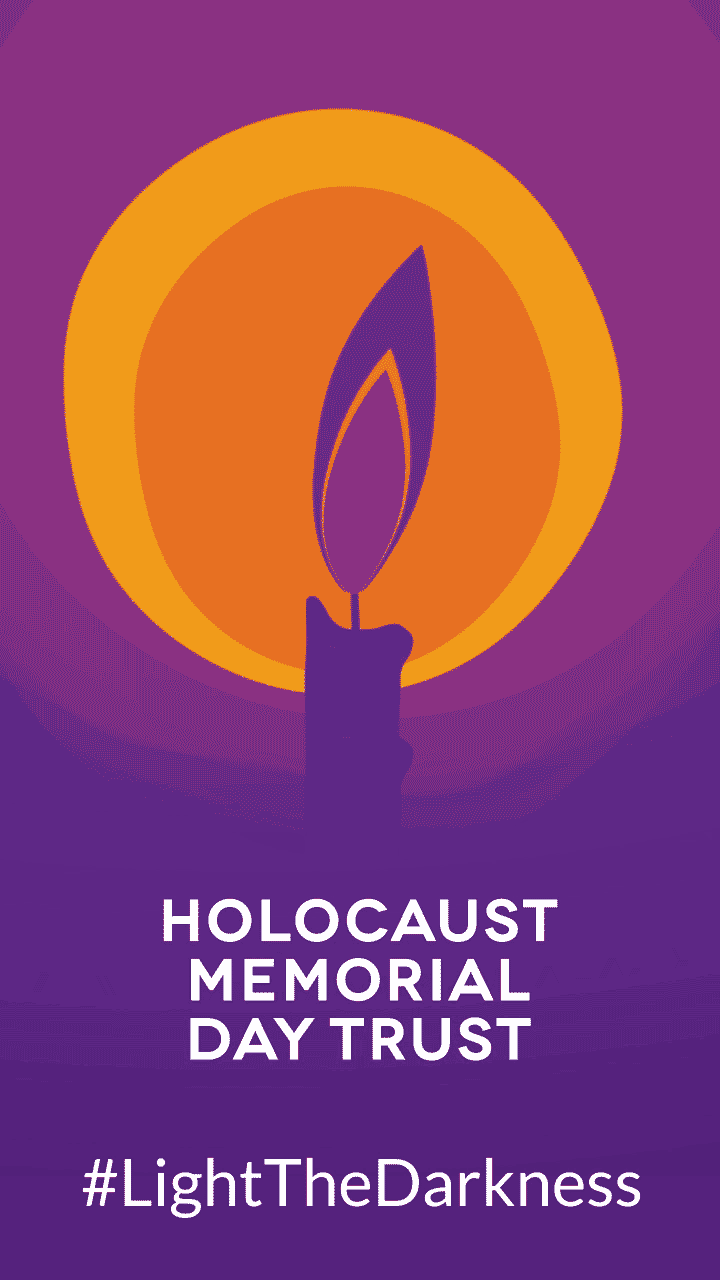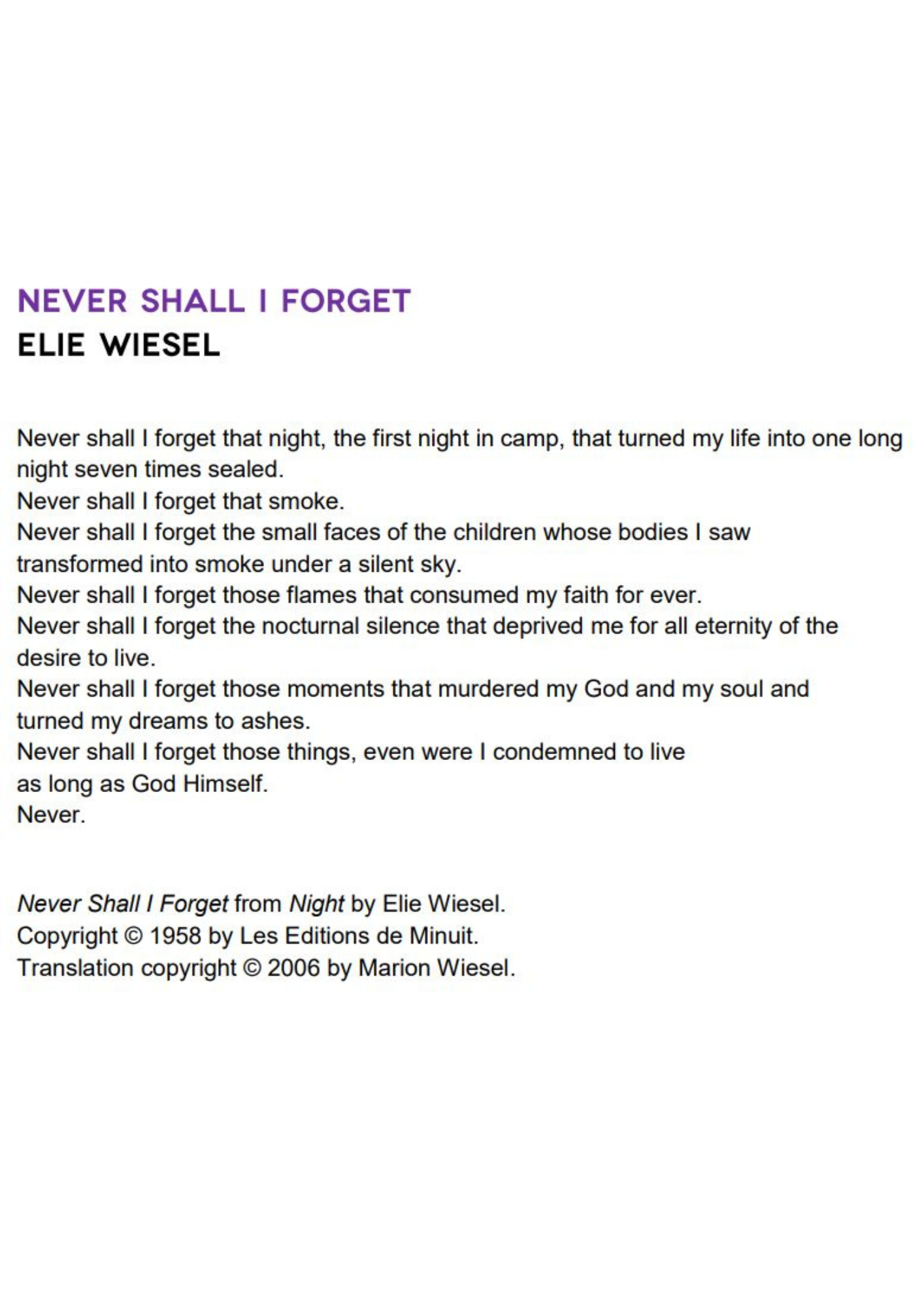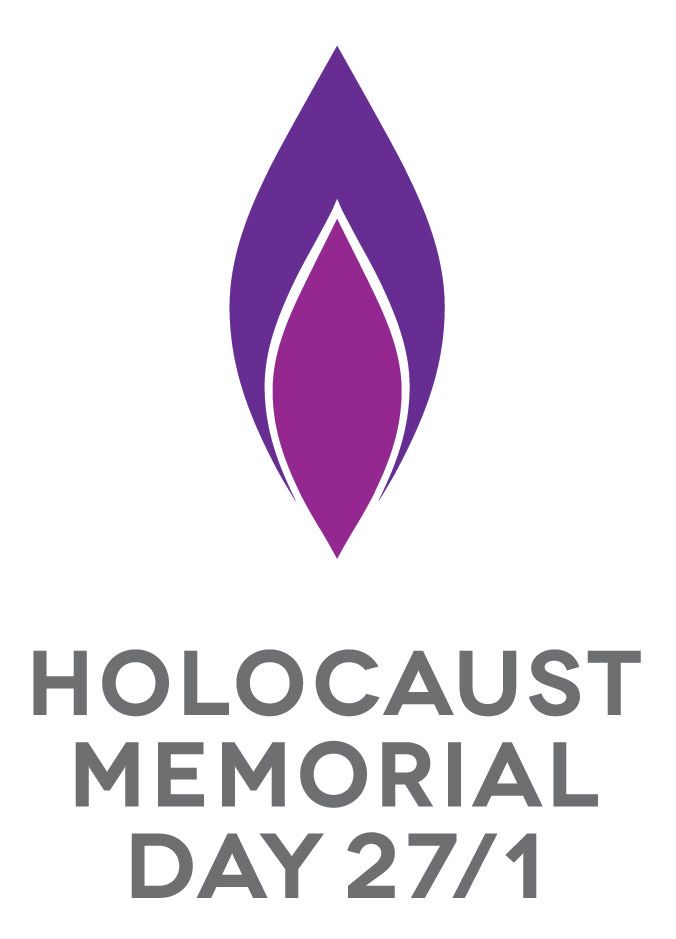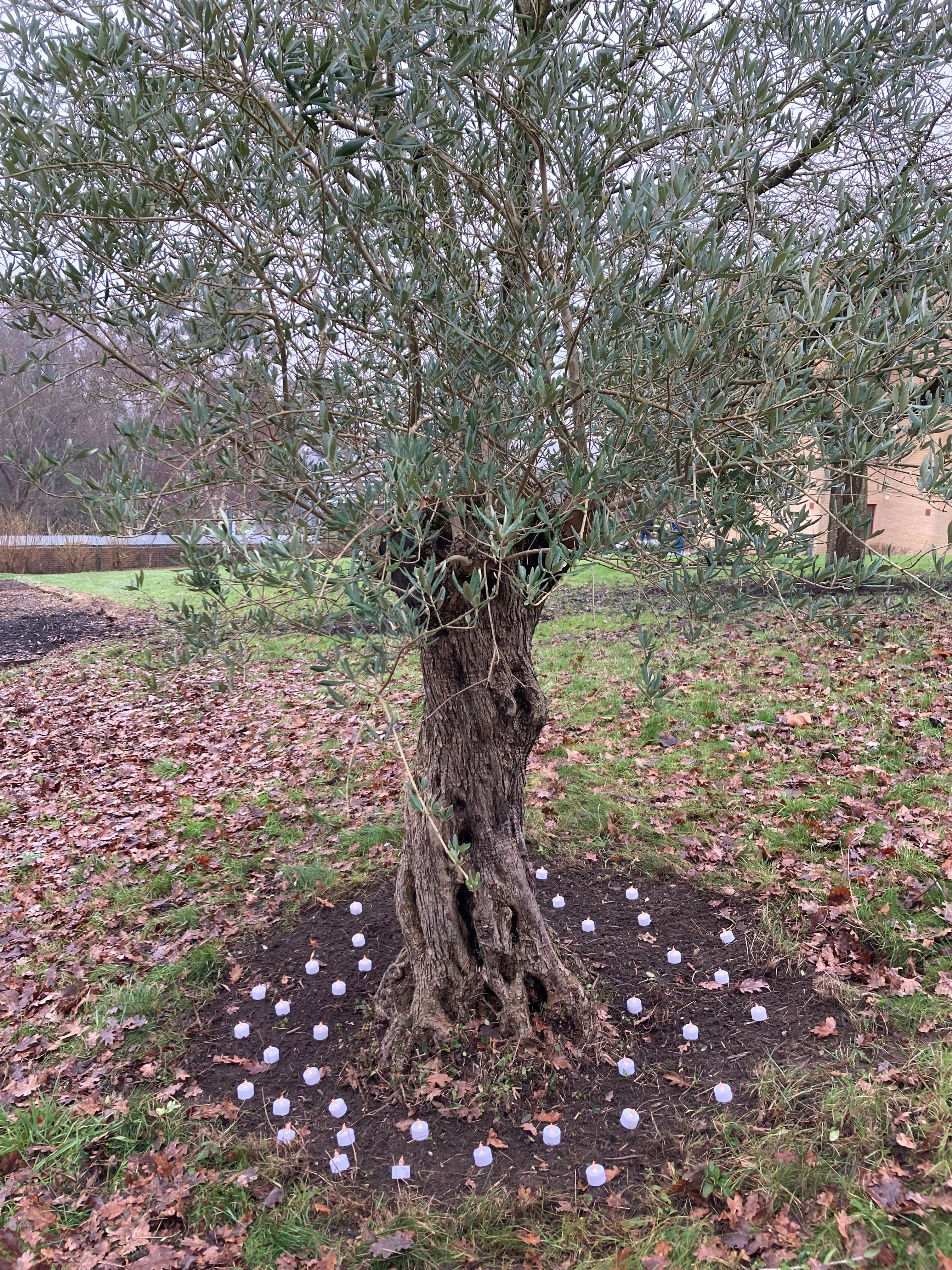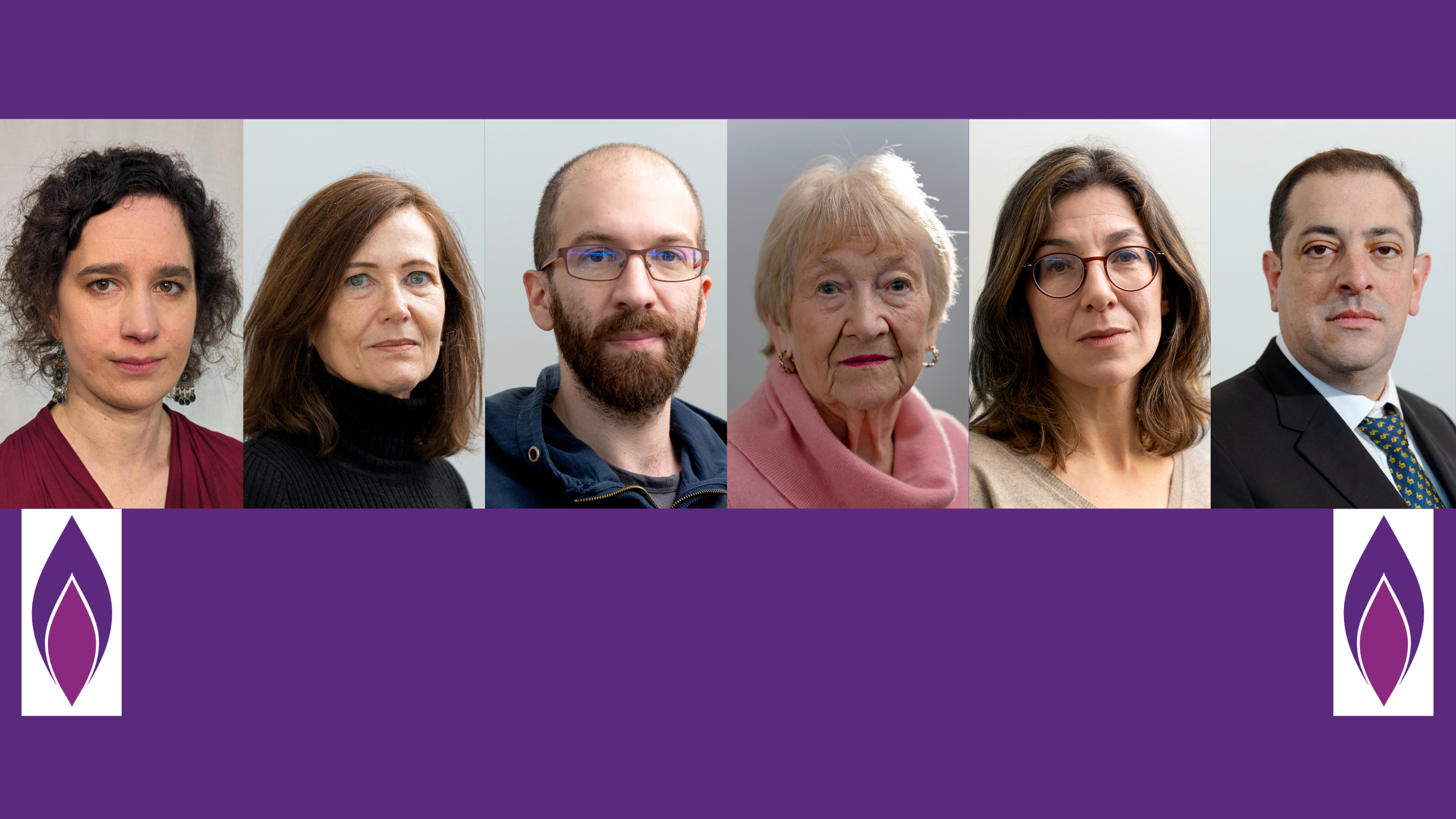
'Ordinary People' is the national theme of Holocaust Memorial Day 2023.
It was ordinary people who were involved in all aspects of the Shoah (Holocaust), Nazi persecution of other groups, and in the genocides that took place in Cambodia, Rwanda, Bosnia and Darfur. Ordinary people were perpetrators, bystanders, rescuers, witnesses – and ordinary people were victims.
Ordinary people turned a blind eye, believed propaganda, joined murderous regimes. Ordinary people saved people. And those who are persecuted, oppressed and murdered in genocide aren’t persecuted because of crimes they have committed – they are persecuted simply because they are ordinary people who belong to a particular group.
University of Surrey as a place of refuge
The University of Surrey, and before that Battersea College of Technology, became the intellectual home for several Jews who fled the Nazis and made Britain their home.
By the 1970s, a third of Jewish families in Guildford had one member of their household working or studying at the University and today there is a thriving Jewish community comprising of many students and staff of Jewish heritage who are descendants of those refugees fleeing genocide.
The videos here record testimonies from a survivor, descendants of survivors (second generation) and relatives of victims: their stories and those of their families have lessons for us today. We thank them for their testimonies and through them are reminded of our responsibility to act to prevent discrimination, hatred and genocide.
The University remains committed to being a sanctuary for those escaping persecution and has run an Asylum Bursary Scheme.
Today
We are all ordinary people today who can be extraordinary in our actions. We can all make decisions to challenge prejudice, stand up to hatred, speak out against identity-based persecution, shop responsibly.
Ordinary people are also the ones who drive Holocaust Memorial Day, who lead on community commemorations, who support and encourage everyone around them to take part in remembrance and education projects.
As part of our commitment to remember the past and avoid repeating these atrocities in the future, we are marking Holocaust Memorial Day through these videos and at a commemoration taking place on campus at our Holocaust Memorial Tree: a place of reflection and remembrance for the victims and relatives of those who were persecuted in the Holocaust and subsequent genocides.
Rabbi Alex Goldberg
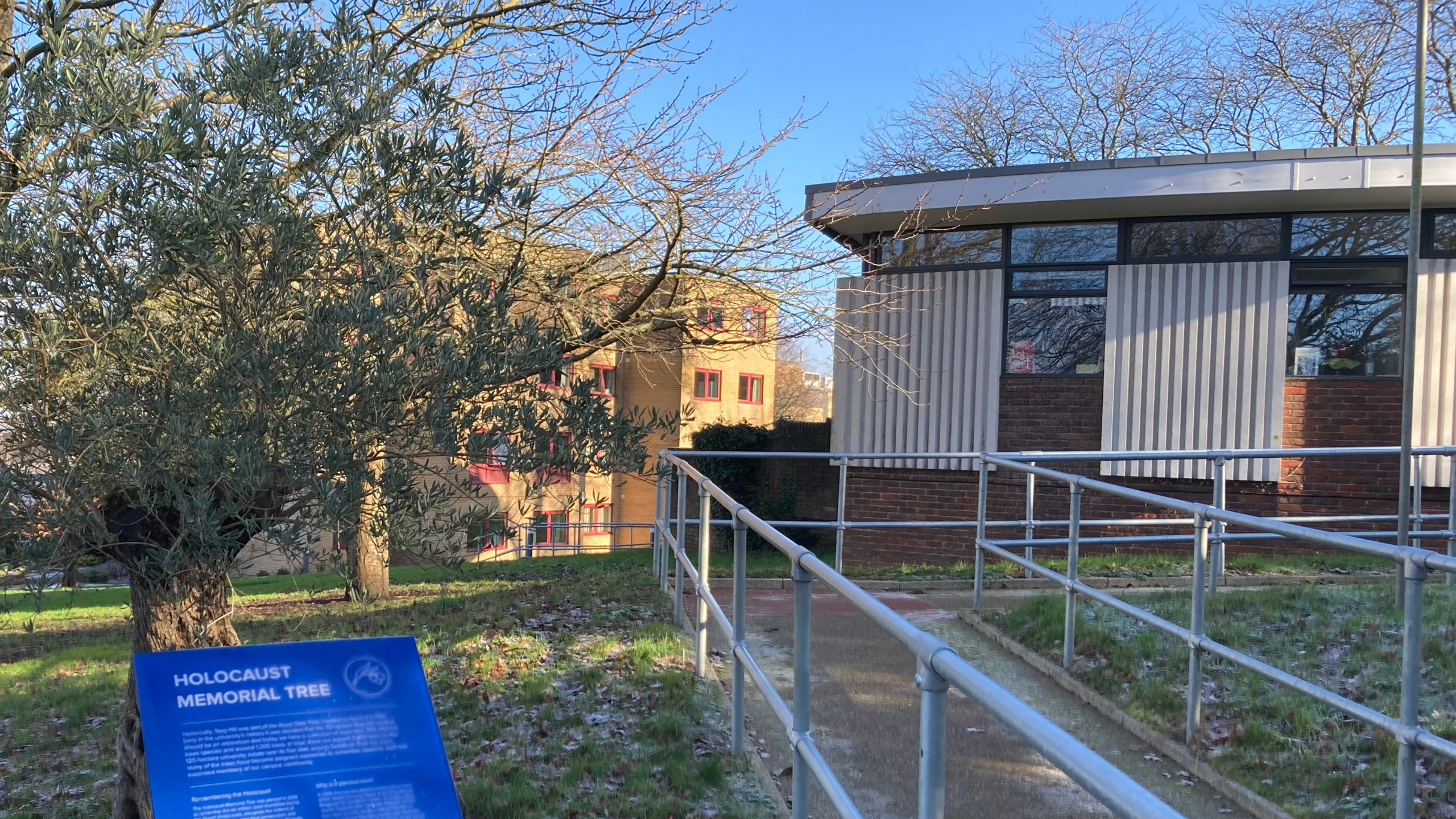
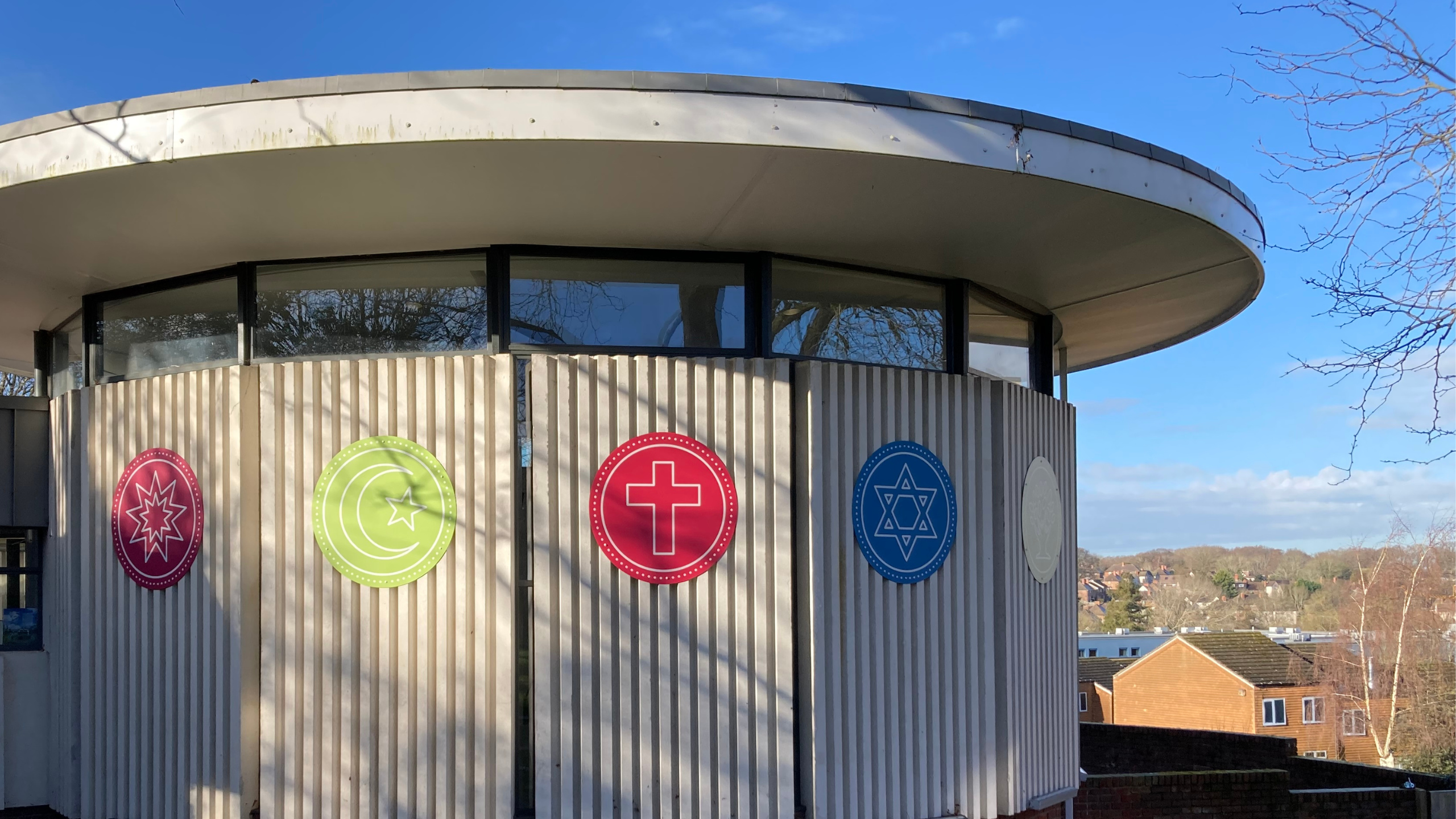
'Ordinary People' is the national theme of Holocaust Memorial Day 2023.
It was ordinary people who were involved in all aspects of the Shoah (Holocaust), Nazi persecution of other groups, and in the genocides that took place in Cambodia, Rwanda, Bosnia and Darfur. Ordinary people were perpetrators, bystanders, rescuers, witnesses – and ordinary people were victims.
Ordinary people turned a blind eye, believed propaganda, joined murderous regimes. Ordinary people saved people. And those who are persecuted, oppressed and murdered in genocide aren’t persecuted because of crimes they have committed – they are persecuted simply because they are ordinary people who belong to a particular group.
University of Surrey as a place of refuge
The University of Surrey, and before that Battersea College of Technology, became the intellectual home for several Jews who fled the Nazis and made Britain their home.
By the 1970s, a third of Jewish families in Guildford had one member of their household working or studying at the University and today there is a thriving Jewish community comprising of many students and staff of Jewish heritage who are descendants of those refugees fleeing genocide.
The videos here record testimonies from a survivor, descendants of survivors (second generation) and relatives of victims: their stories and those of their families have lessons for us today. We thank them for their testimonies and through them are reminded of our responsibility to act to prevent discrimination, hatred and genocide.
The University remains committed to being a sanctuary for those escaping persecution and has run an Asylum Bursary Scheme.
Today
We are all ordinary people today who can be extraordinary in our actions. We can all make decisions to challenge prejudice, stand up to hatred, speak out against identity-based persecution, shop responsibly.
Ordinary people are also the ones who drive Holocaust Memorial Day, who lead on community commemorations, who support and encourage everyone around them to take part in remembrance and education projects.
As part of our commitment to remember the past and avoid repeating these atrocities in the future, we are marking Holocaust Memorial Day through these videos and at a commemoration taking place on campus at our Holocaust Memorial Tree: a place of reflection and remembrance for the victims and relatives of those who were persecuted in the Holocaust and subsequent genocides.
Rabbi Alex Goldberg
Katalin Koltai
As a cantor, Katalin’s grandfather Vilmos Klein played a busy part in the religious life of a small town in Hungary until the rise of antisemitism and nationalisation brought great suffering to the nation’s Jews.
Vilmos and his family were not spared – his wife and two daughters were shot by SS soldiers after being forced to march to a concentration camp in Austria. Vilmos escaped from a labour camp and later returned to Hungary where he remarried. But antisemitic threats grew again, before and during the 1956 revolution, and Vilmos felt he had no choice but to escape to Israel. His wife and child didn’t follow him. He would later marry his third wife, who was an Auschwitz survivor.
Katalin, a PGR in Music and Media, says her grandfather's story demonstrates the importance of never giving up and how we all have a responsibility to stand up against injustice.
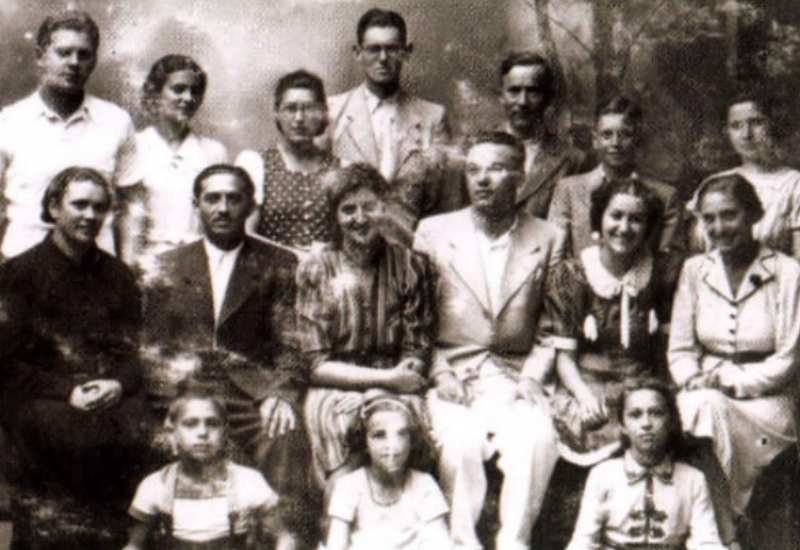
Katalin's grandfather Vilmos (pictured middle row, second from left) with the Jewish choir he led before the war.
Katalin's grandfather Vilmos (pictured middle row, second from left) with the Jewish choir he led before the war.
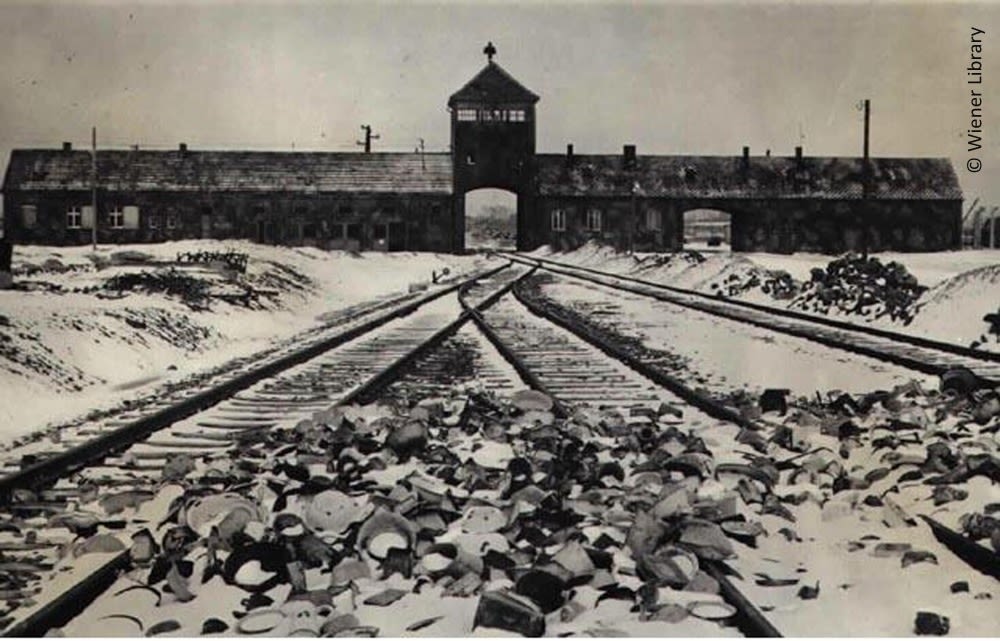
The railway tracks, main gate and tower at Auschwitz-Birkenau.
The railway tracks, main gate and tower at Auschwitz-Birkenau.
Beatrice Gould
Born in the German city of Munich to Polish parents, Beatrice lived in Nazi Germany before her family was ordered to the border with one suitcase each, only for a twist of fate to lead them on a dangerous sea voyage to the safety of England.
She reflects on the reception she received as a child refugee who couldn't speak the language and recalls her experience of returning to Germany much later in life, as well as the lessons she learned from the Holocaust.
Beatrice - a long-standing friend of the University - talks about the lessons she learned from the Holocaust, and implores the Surrey Community to have tolerance and sympathy for those without privilege.
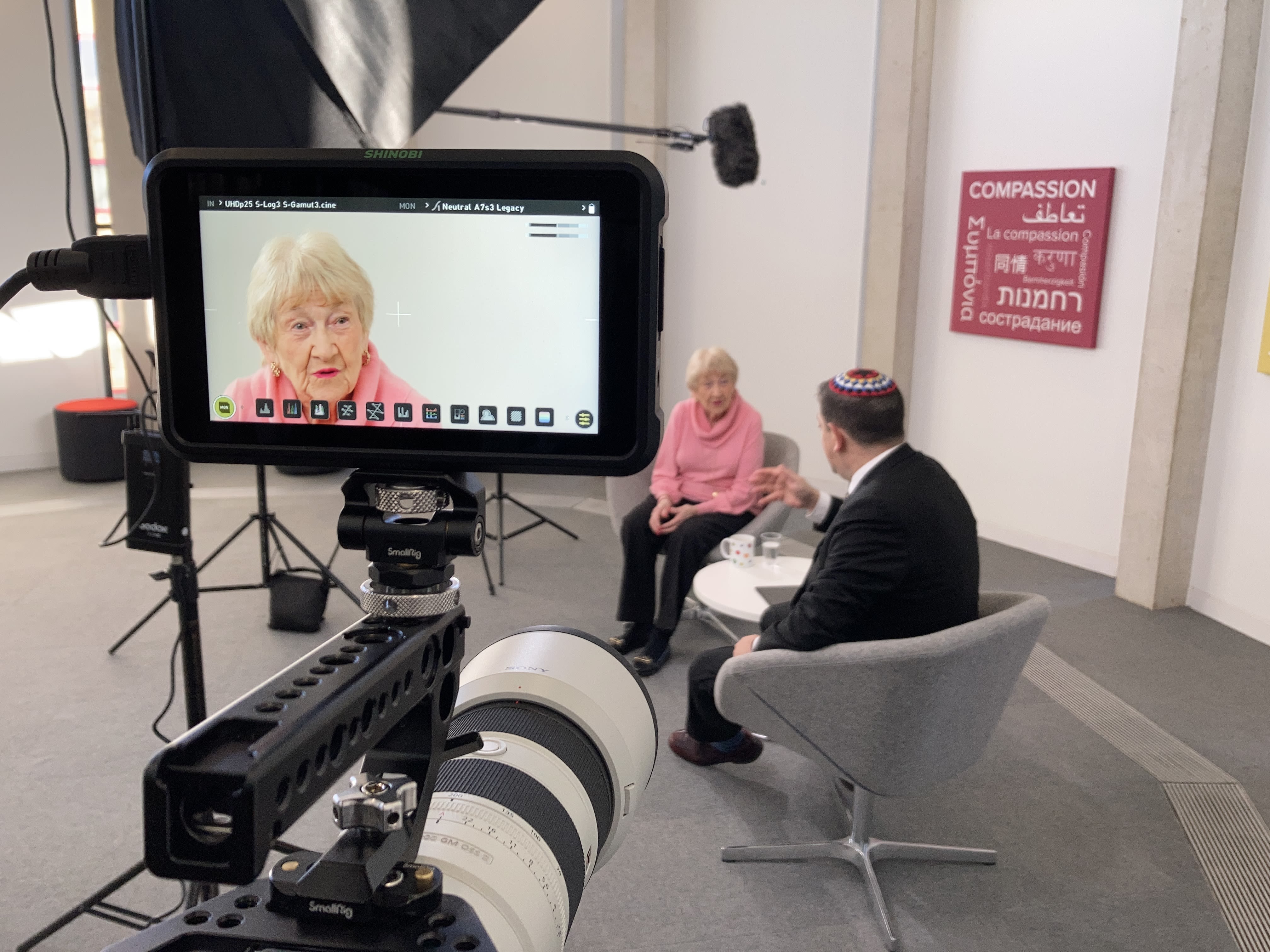
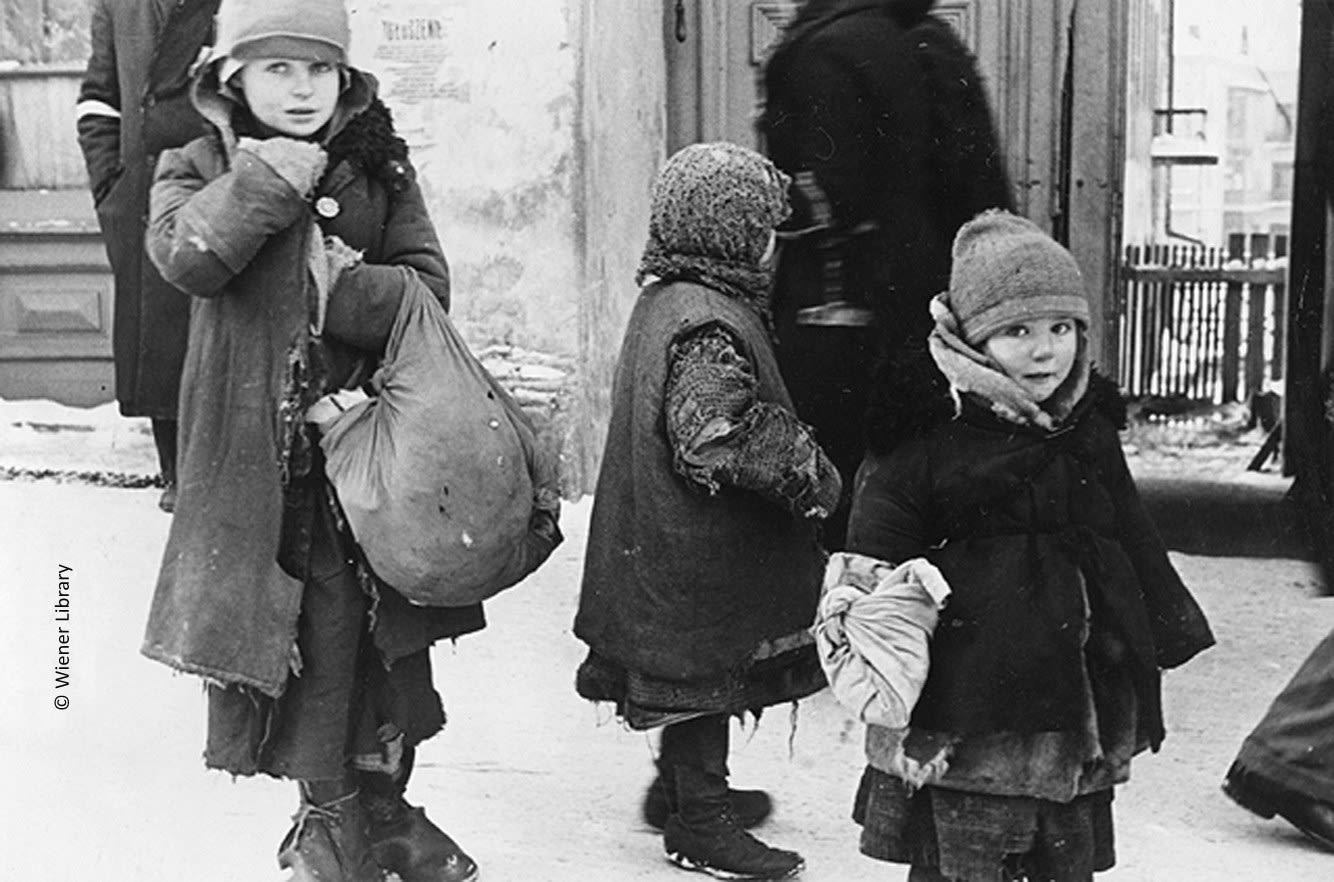
Beatrice and her family were forced to leave their home in sub-zero temperatures and board a train to Poland. Pictured: Children in rags.
Beatrice and her family were forced to leave their home in sub-zero temperatures and board a train to Poland. Pictured: Children in rags.
Dr David Gyorfi
David recounts the story of his grandmother, Terézia, and his grandfather, Jenő, whose honeymoon was cut short when Jenő was forced to become a Hungarian soldier in Ukraine; he returned to find his new wife had been taken to Auschwitz.
Jenő, a blacksmith, signed up for labour service in Germany in the hope of finding her there and would later look back on his offer to create a stove for cold Nazi soldiers as a life-saving moment that would lead him back to Terézia and her own harrowing story of survival.
David – who has recently been awarded his PhD by the University of Surrey – explains the importance of his Jewish identity and how the Shoha impacted members of his family.
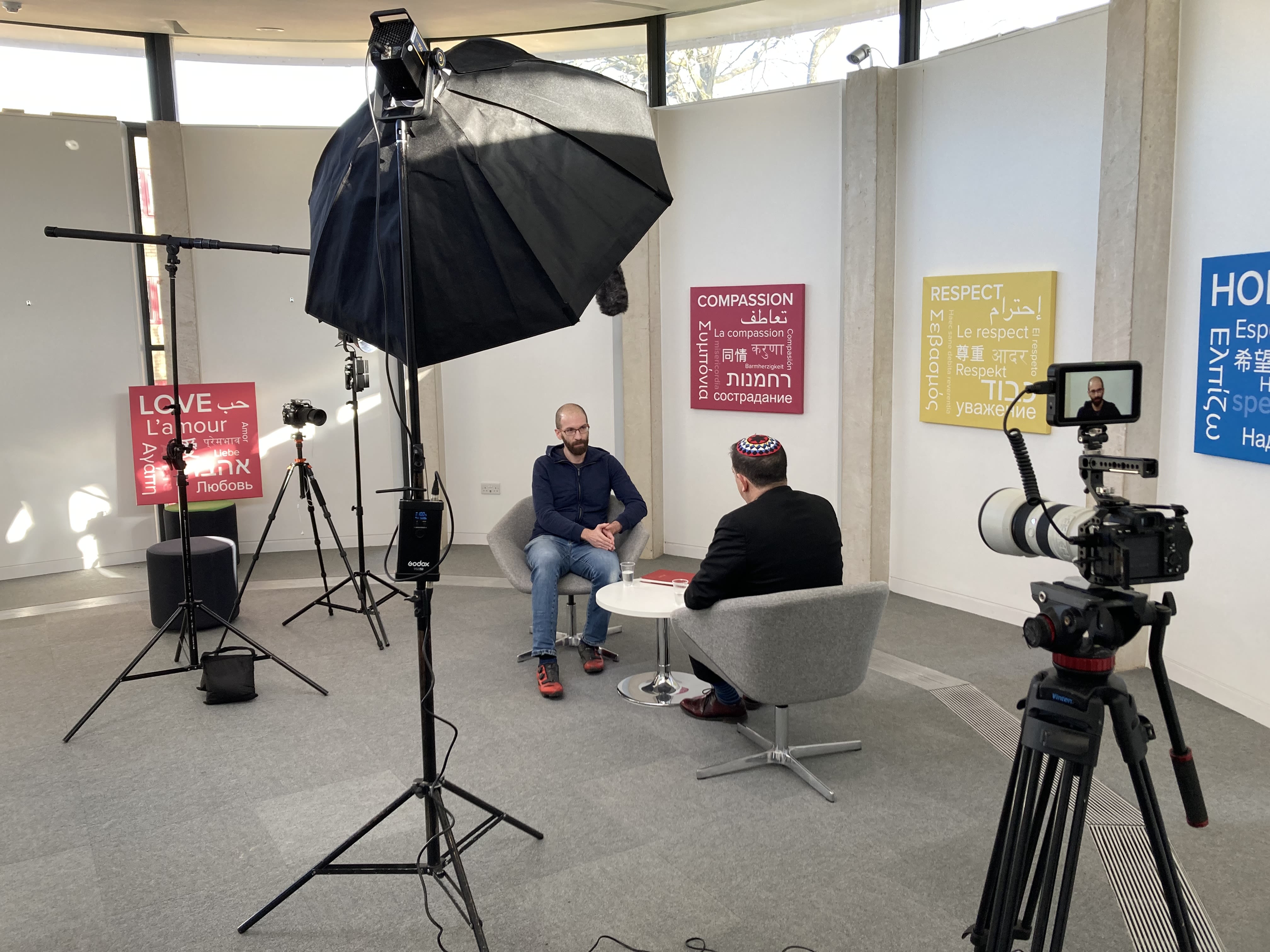
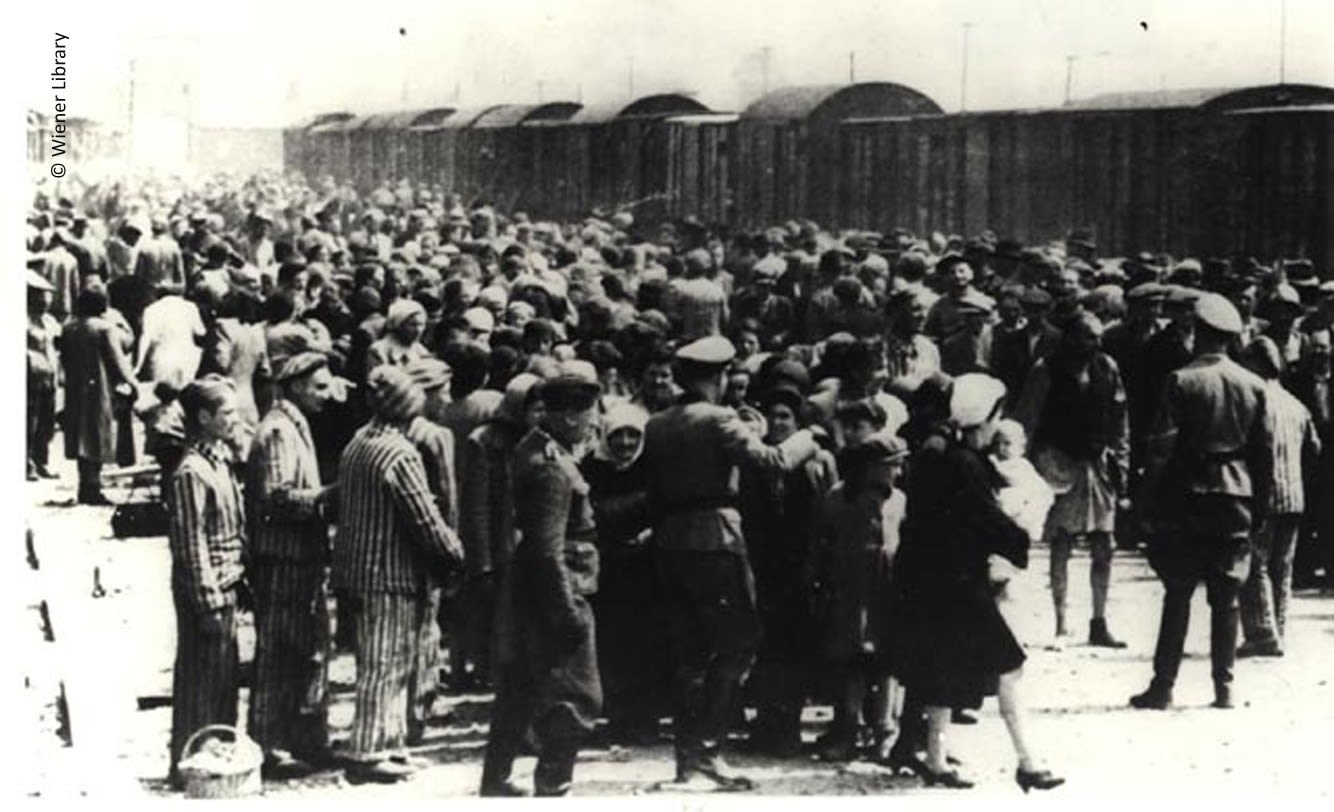
Arrival and selection at the ramp at Auschwitz-Birkenau.
Arrival and selection at the ramp at Auschwitz-Birkenau.
Dr Ana Frankenberg-Garcia
When she was growing up, Ana’s father Louis (pictured right) never spoke about his experience of the Holocaust, a life-shattering event that left him orphaned and fending for himself inside concentration camps.
Later in life, he would decide to reconnect with his past, asking his daughter to translate his memories into English and producing the video published here (right).
Ana talks about her father’s miraculous escape in exchange for German prisoners of war, eventually leading him back to Holland, where, as a troubled child, he went from foster home to foster home.
His story ends in South America, where he was reunited with relatives thanks to a serendipitous article in a New York newspaper.
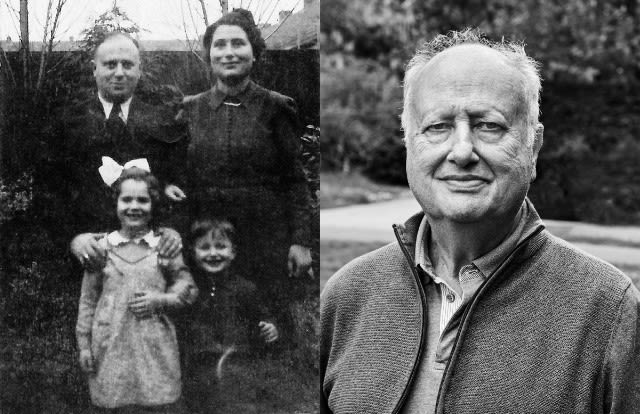
Louis (bottom right) with his parents and sister in Holland (possibly 1941 - Louis Frankenberg’s private collection). Right: Ana’s father Louis (Copyright: Roberto Frankenberg).
Louis (bottom right) with his parents and sister in Holland (possibly 1941 - Louis Frankenberg’s private collection). Right: Ana’s father Louis (Copyright: Roberto Frankenberg).
Ana's father Louis talking about his experiences.
Dr Constance Bantman
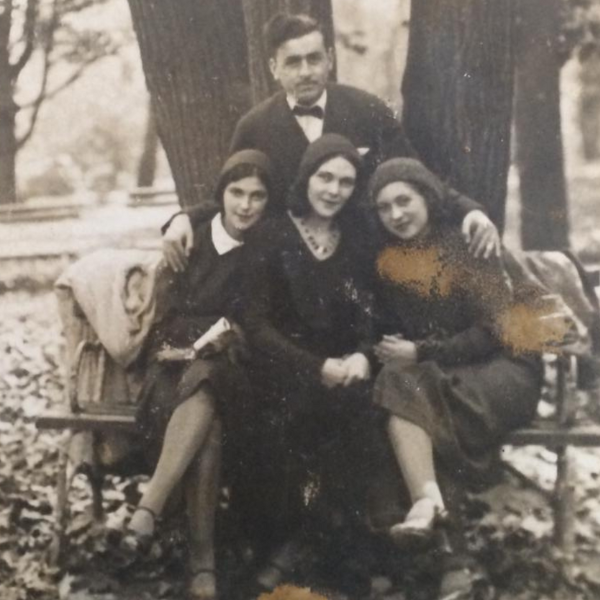
Constance's grandmother Ethel Vainschenker Oster (pictured middle).
Constance's grandmother Ethel Vainschenker Oster (pictured middle).
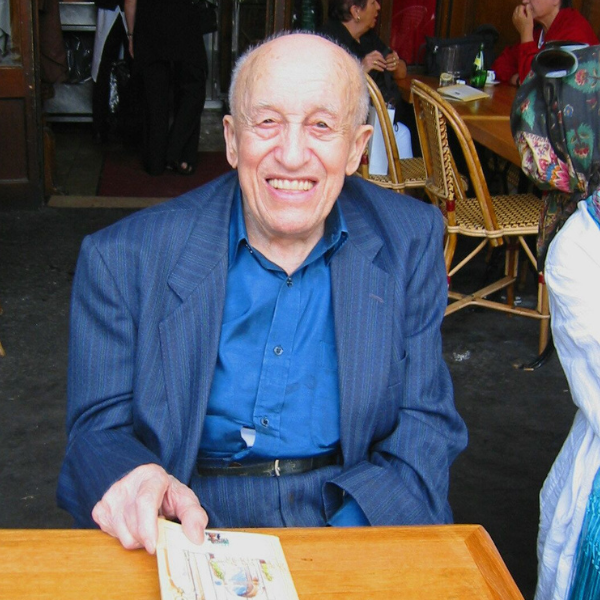
Constance's grandfather, Dagobert Oster.
Constance's grandfather, Dagobert Oster.
Constance’s grandparents were concentration camp survivors. Her grandfather spent four years in Blechhammer Labour Camp and her grandmother spent a year in Auschwitz-Birkenau. Both lost their first families to the Holocaust.
Constance, an Associate Professor in French, reflects on the ordinariness of genocide survivors, and the need to remember the essential dignity of every person targeted because of their religion, nationality, sexual preferences or political beliefs.
She also talks about the need for universal values such as solidarity and empathy, but also the importance of looking out for each other and being aware of those facing persecution today.
Rabbi Alex Goldberg
Rabbi Alex describes the moment his grandfather told him about lost cousins who had been living in the Lithuanian village known as Akmian (in Yiddish and Akmene in Lithuanian). No one had heard from them since or from anyone who was left behind in the village during the war.
By chance, Alex would one day read about the fate of the Jewish men, women and children from the village in a recollection written by a fellow resident.
In the account, the man described how he and other non-Jewish residents had collaborated with the Nazis to systematically murder their fellow villagers for rewards.
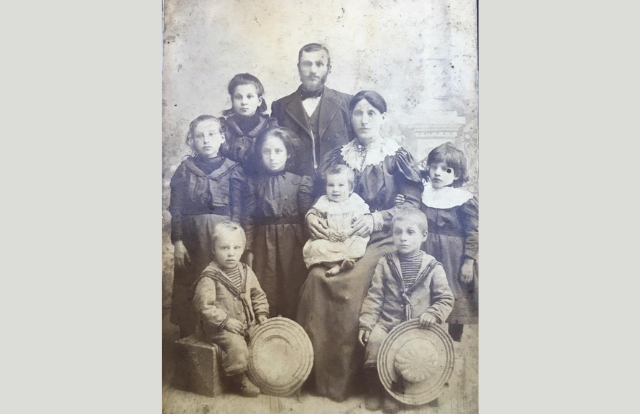
Family members photographed in Lithuania in peaceful times: some went to Ireland and others to America, whilst some stayed put.
Family members photographed in Lithuania in peaceful times: some went to Ireland and others to America, whilst some stayed put.
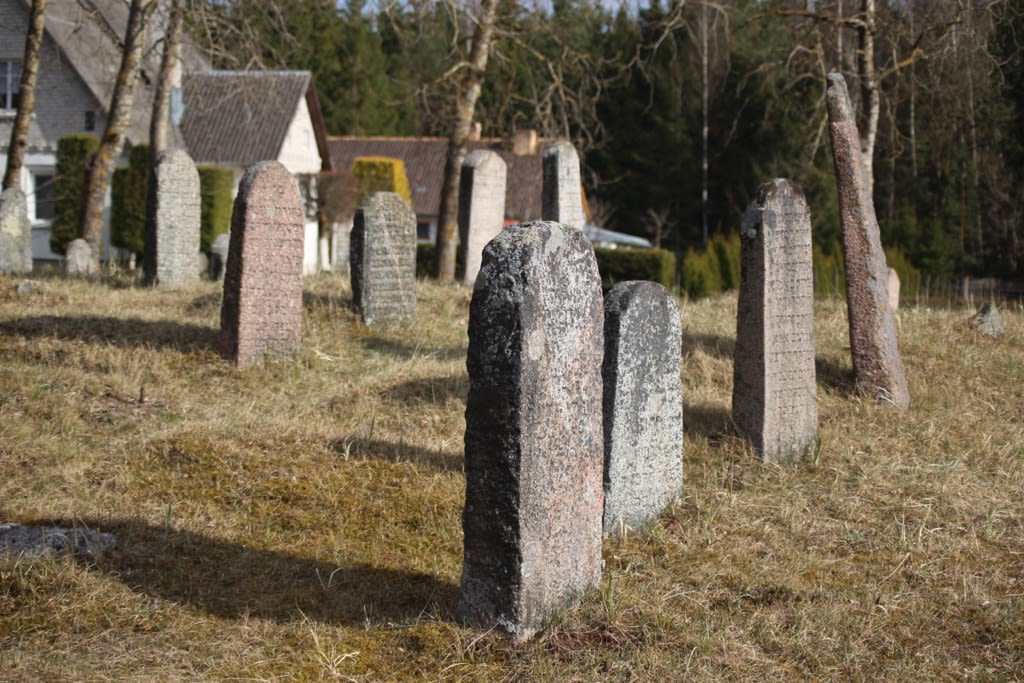
The graveyard at Akmian.
The graveyard at Akmian.
Reverend Duncan Myers
Reverend Duncan Myers tells the story of his Jewish grandpa Fritz Meyer, a German businessman who became known as Frank after moving to England in 1939.
Born in 1880, Fritz was called Sally Meyer for the first 40 years of his life but changed his name, perhaps in an effort to reposition his persona from Jewish to more German.
In November 1938 he was held in Sachsenhausen concentration camp for two weeks before escaping the full horrors of the Nazi final solution by travelling to Southampton and taking refuge in the country that was at war with his homeland.
Duncan - Anglican chaplain at the University of Surrey - was given the middle name 'Frank' by his parents to honour his grandfather.
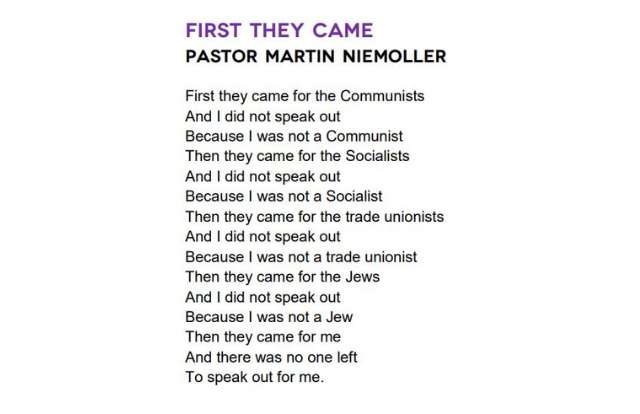
‘First they came’ is a poem by Pastor Martin Niemoller, who was imprisoned at Sachsenhausen concentration camp, where Duncan's grandfather was interned.
‘First they came’ is a poem by Pastor Martin Niemoller, who was imprisoned at Sachsenhausen concentration camp, where Duncan's grandfather was interned.
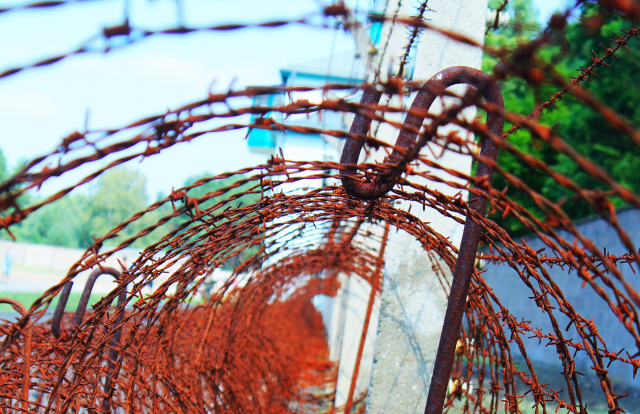
Barbed wire and tower at Sachsenhausen concentration camp. (Getty Images).
Barbed wire and tower at Sachsenhausen concentration camp. (Getty Images).
Commemorating Holocaust Memorial Day 2023 at the University of Surrey
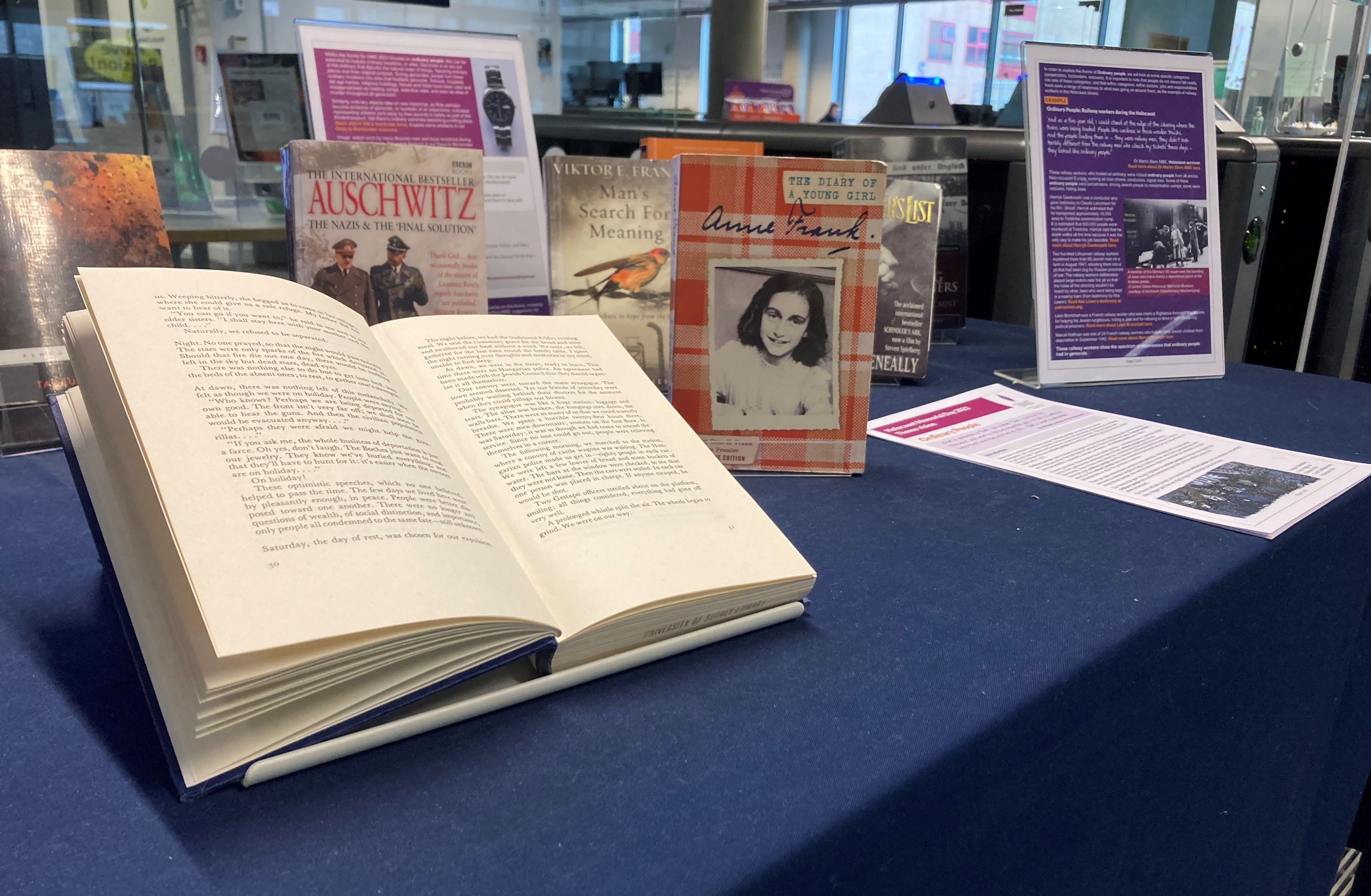
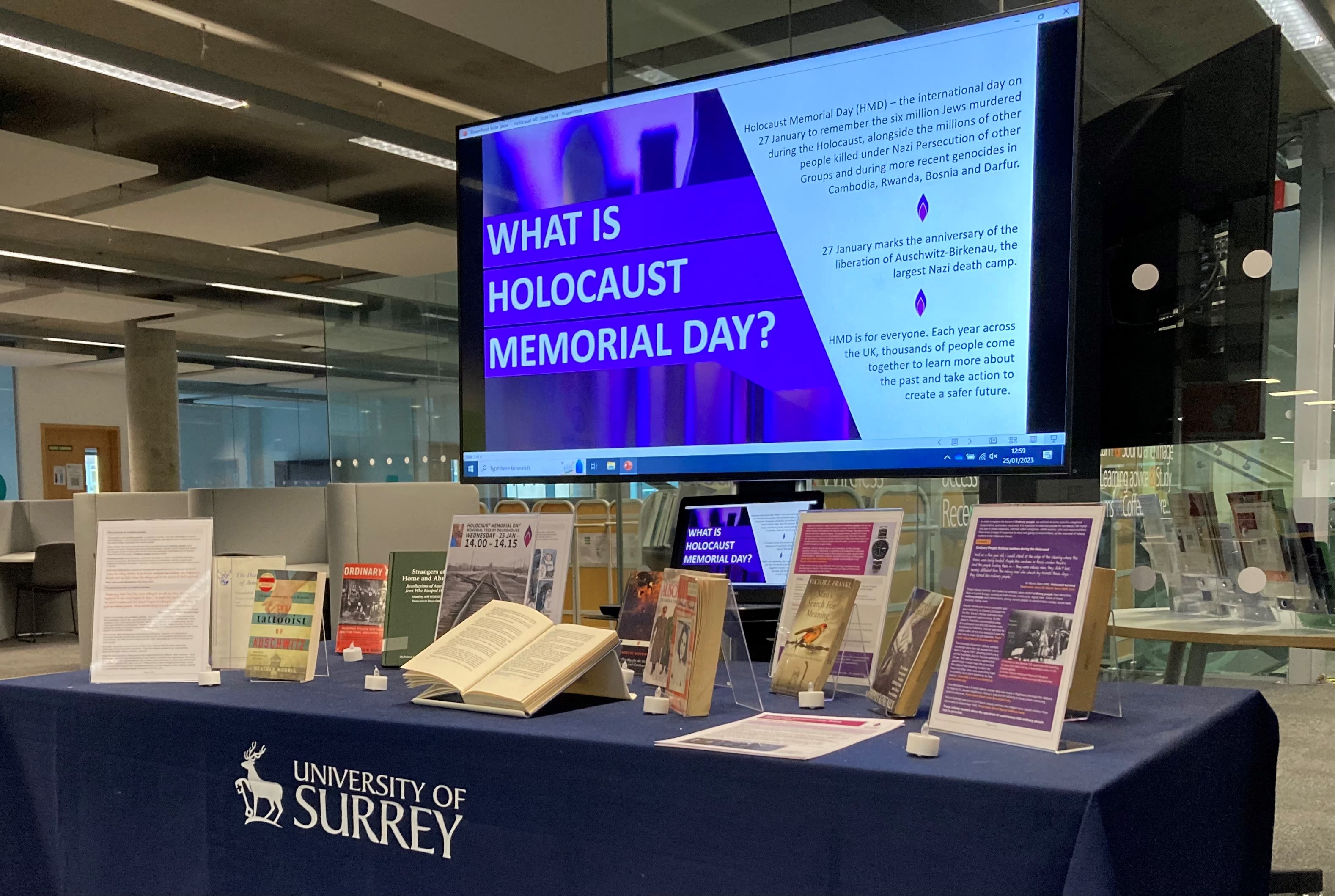
The Library provided a place for reflection, and displayed related videos, literature and resources.
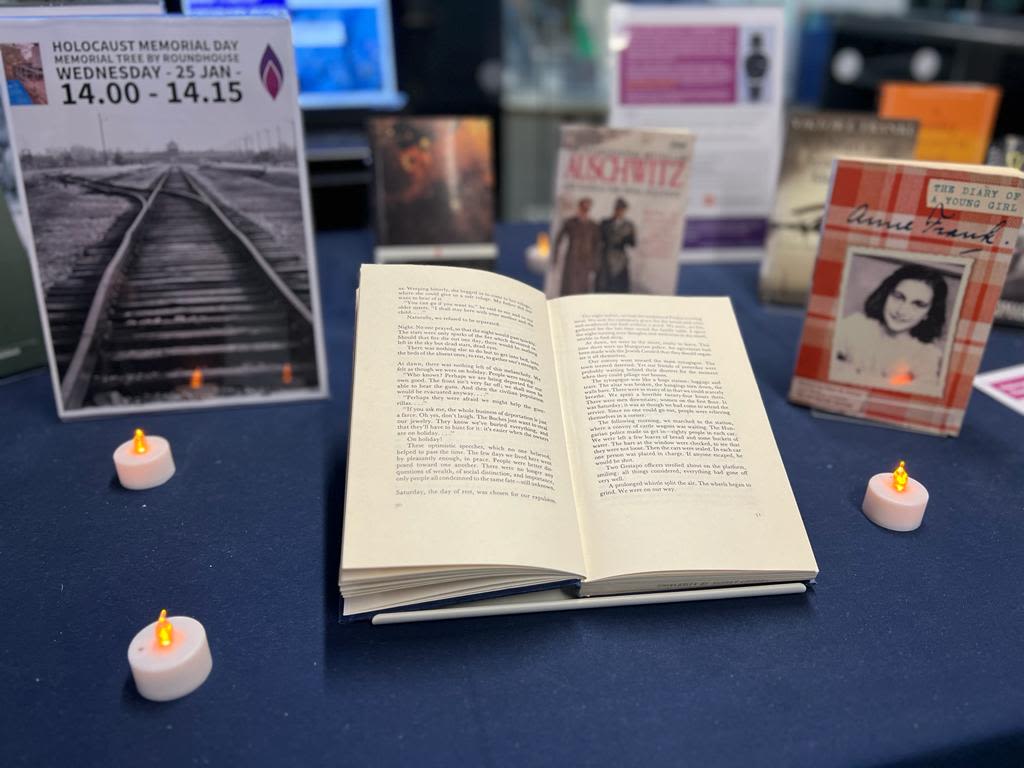
Staff and students were invited to learn more about the Holocaust and to light an electronic candle.
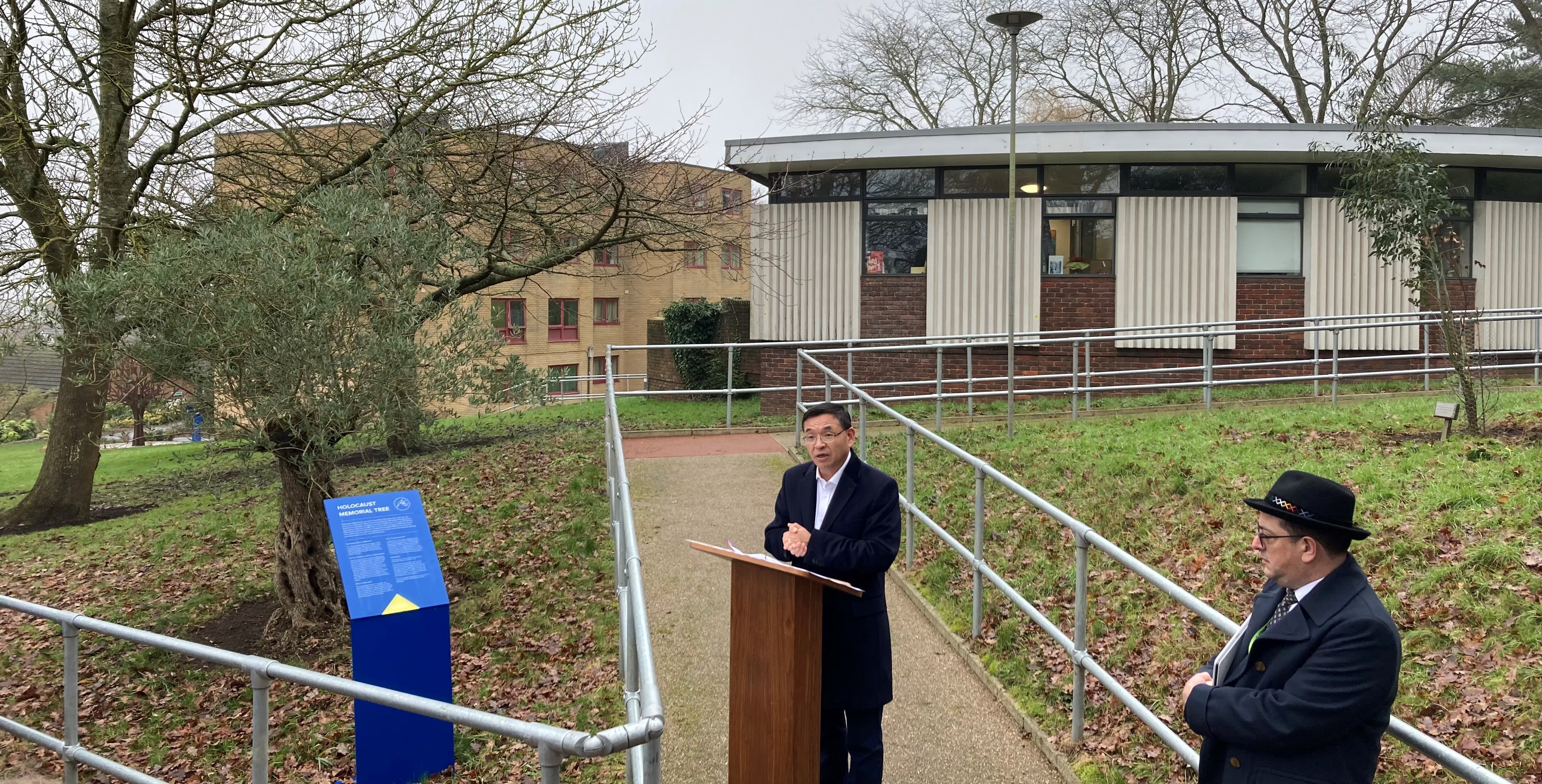
President and Vice-Chancellor Max Lu, Rabbi Alex and SU President Diana Dakik led a commemoration.
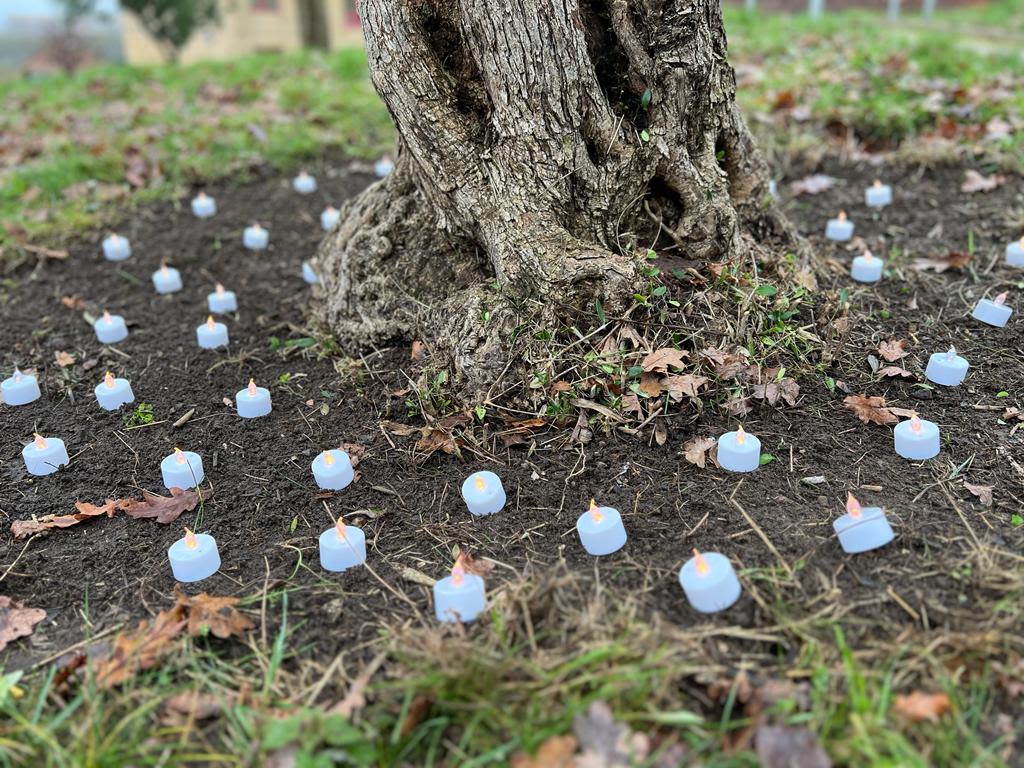
Those who gathered at the Holocaust Memorial Tree could light a candle as an act of remembrance.
Speak Up! Speak Out!
